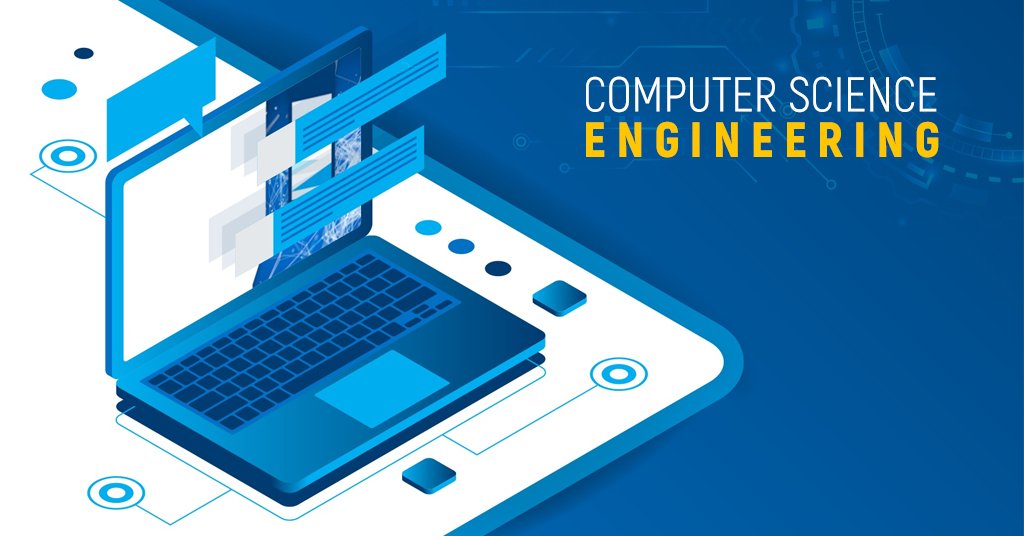Computer science (CS) and information technology (IT) are integral components of the engineering landscape, playing pivotal roles in shaping modern technological advancements. In this article, we delve into the reasons behind the fusion of computer science and IT within the realm of engineering, exploring their synergies, applications, and significance.
Introduction to Computer Science and IT
Definition and Scope
Computer science encompasses the study of algorithms, data structures, programming languages, and computational theories, focusing on the development of software solutions and computational models. On the other hand, information technology deals with the utilization of computer systems to manage, process, and disseminate data effectively.
Importance in Modern Society
In today’s digital era, computer science and IT serve as the backbone of technological progress, driving innovation across various sectors such as healthcare, finance, manufacturing, and communication. Their widespread adoption has revolutionized the way we work, communicate, and conduct business, underscoring their indispensable role in modern society.
Computer Science in Engineering
Integration of Computer Science in Engineering Fields
Computer science seamlessly integrates into various engineering disciplines, including mechanical, electrical, civil, and aerospace engineering. It provides engineers with powerful tools and methodologies to analyze complex systems, design efficient algorithms, and develop cutting-edge software solutions tailored to specific engineering requirements.
Role in Engineering Innovations
The marriage of computer science and engineering has fueled groundbreaking innovations, ranging from autonomous vehicles and smart infrastructure to robotics and renewable energy systems. By harnessing the power of computational techniques and data analytics, engineers can optimize processes, improve performance, and address real-world challenges more effectively.
Information Technology in Engineering
Application of IT in Engineering Practices
Information technology plays a crucial role in streamlining engineering practices, enabling seamless collaboration, data management, and project coordination. From CAD (Computer-Aided Design) software and simulation tools to cloud computing and IoT (Internet of Things) devices, IT solutions empower engineers to enhance productivity and innovation in their projects.
Impact on Engineering Efficiency and Productivity
The integration of IT tools and platforms enhances engineering efficiency by automating repetitive tasks, reducing errors, and facilitating real-time monitoring and analysis. By leveraging IT infrastructure and software applications, engineers can optimize resource allocation, mitigate risks, and accelerate project timelines, leading to improved productivity and cost-effectiveness.
Key Similarities and Differences
Core Principles and Concepts
While computer science and IT share common principles such as algorithms, data structures, and software development methodologies, they differ in their focus and application. Computer science emphasizes theoretical concepts and algorithmic problem-solving, whereas IT emphasizes practical implementation and system administration.
Skill Sets and Specializations
Computer scientists specialize in areas such as artificial intelligence, machine learning, and computational theory, whereas IT professionals specialize in network administration, cybersecurity, and database management. Despite these differences, both disciplines require strong analytical skills, programming proficiency, and a knack for problem-solving.
Career Opportunities
Diverse Career Paths in Engineering with CS/IT Background
Individuals with a background in computer science and IT have access to a wide range of career opportunities in the engineering domain. They can pursue roles such as software engineer, systems analyst, data scientist, network architect, and cybersecurity specialist, among others, across various industries and sectors.
Job Market Demand and Growth Prospects
The demand for skilled professionals in computer science and IT continues to grow steadily, driven by the rapid pace of technological innovation and digital transformation. With increasing reliance on technology across industries, engineers proficient in CS/IT are well-positioned to capitalize on emerging job opportunities and advance their careers in the long run.
Importance of CS and IT in Engineering Education
Enhancing Problem-Solving Skills
Integrating computer science and IT concepts into engineering education enhances students’ problem-solving skills, analytical thinking, and computational literacy. By exposing students to interdisciplinary projects and hands-on experiences, educators can prepare the next generation of engineers to tackle complex challenges and drive innovation in their respective fields.
Facilitating Interdisciplinary Collaboration
Collaboration between computer scientists, IT professionals, and engineers fosters interdisciplinary innovation, leading to the development of holistic solutions to societal problems. By bridging the gap between theory and practice, interdisciplinary education equips students with the skills and mindset necessary to thrive in a rapidly evolving technological landscape.
Conclusion
In conclusion, the integration of computer science and IT within the field of engineering is driven by the need to harness technological advancements, solve complex problems, and drive innovation across various domains. By leveraging the synergies between these disciplines, engineers can develop robust solutions, optimize processes, and shape the future of technology.
Unique FAQs After The Conclusion:
- Is a background in computer science or IT necessary for a career in engineering?
- While not mandatory, a strong foundation in computer science or IT can significantly enhance your prospects in engineering by providing valuable skills and knowledge applicable to modern technological challenges.
- How can engineers stay updated with the latest developments in computer science and IT?
- Engineers can stay abreast of the latest developments by actively participating in professional development courses, attending conferences, and engaging with online communities and forums dedicated to technology and innovation.
- What role do emerging technologies like AI and blockchain play in the future of engineering?
- Emerging technologies like AI and blockchain hold immense potential to transform engineering practices, enabling automation, optimization, and decentralization of systems and processes.
- Are there any ethical considerations associated with the integration of technology in engineering?
- Yes, the integration of technology in engineering raises ethical concerns related to privacy, security, and societal impact. Engineers must adhere to ethical guidelines and regulations to ensure responsible and ethical use of technology.
- How can aspiring engineers with a passion for technology leverage their skills for social good?
- Aspiring engineers can leverage their skills for social good by engaging in projects and initiatives aimed at addressing pressing societal challenges, such as healthcare, education, environmental sustainability, and social justice.


